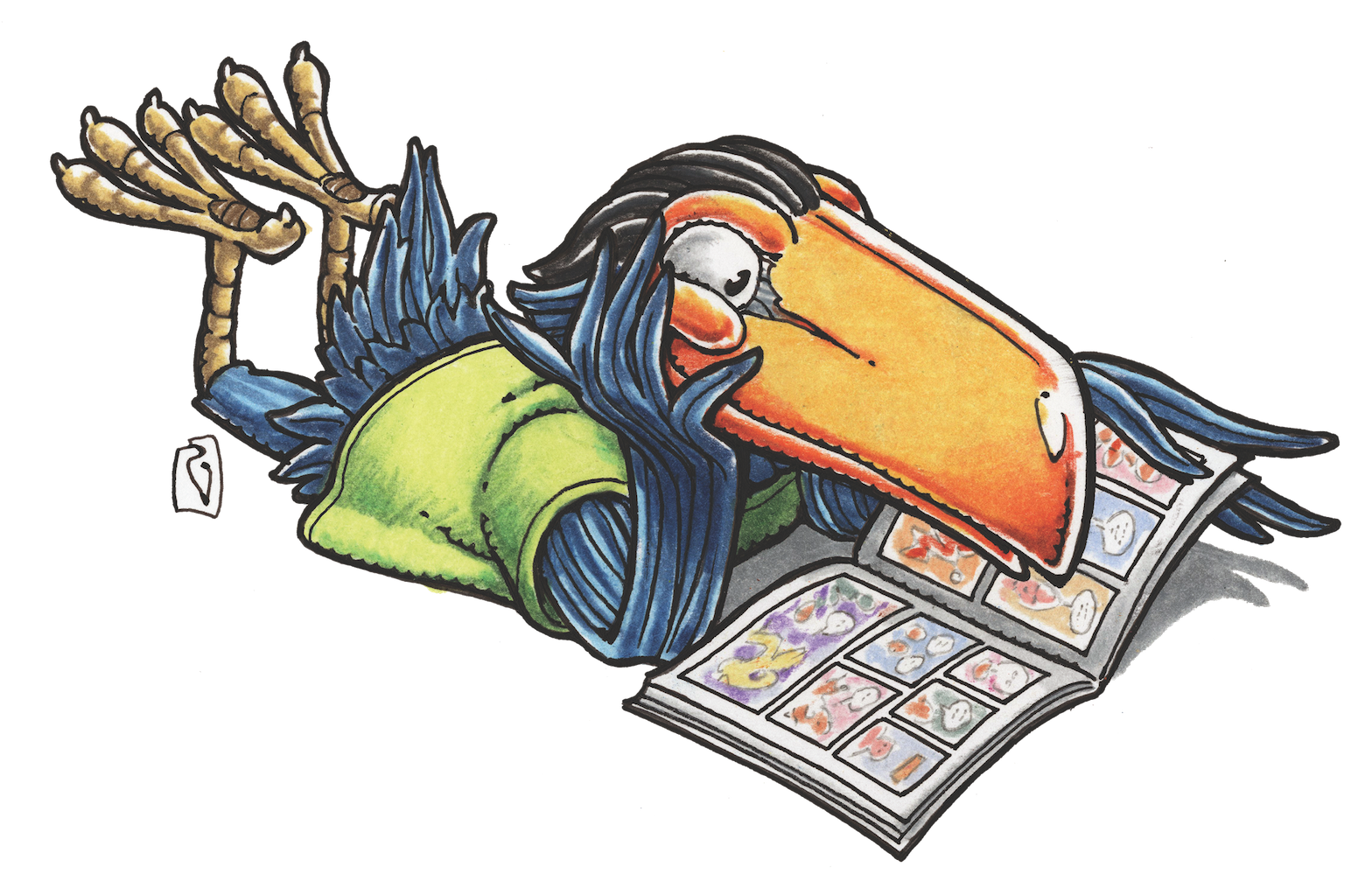A VETERAN ARTIST ADVOCATES MENTORING
Dilettante 002: Bring Back Mentorship

Making comics for a living is hard. The basics of the craft can take years to acquire, with the subtleties of expressive art taking even longer. And along the way, you somehow need to learn how to run a small business, an entirely separate but equally vital skill set.

There are schools teaching this stuff. Here in the United States, there’s SVA, SCAD, MCAD, CCS, and my own alma mater, The Kubert School, among them. Others colleges are offering classes in making comics as part of their illustration or studio arts programs.
But many young artists are in no position to accumulate a lot of student loan debt and have to make do with textbooks, pro tips on Tumblr, and how-to videos on YouTube. Others emerge from school with a reasonably solid foundation but still need a lot of guidance in creating art and running a business under real-world conditions.
Imagine Sally, a cartoonist just out of art school. The portfolio that leads to her first gig was created under the best possible conditions. She had her entire life up to that moment to produce those pages, and her teachers were there to help her correct the inevitable rookie mistakes. That first job, however, will be created under the worst possible conditions. The deadline is tight. Instead of months and months to get six pages looking perfect, she’s got five days to draw them. Sally’s teachers aren’t available to give her advice. There are problems with the script she’s never run into before. And she’s got to get it drawn while working a part-time job.
Sally’s also not sure about the contract she’s been offered. She knows that it’s a good idea to show a contract to a lawyer, but when she called one, she found that the whole job pays less than the lawyer charges for a one-hour consultation. She’s pretty sure she needs the job and she’s going to sign the paper, but she’s not even sure what she’s agreeing to.
Young artists face these sorts of situations all the time early in their careers. Without experienced advisors who understand both their capabilities and the market, they’re likely to run into problems. This is where a mentor/assistant relationship comes in handy.
Suppose Sally is apprenticing with Zack, a working professional cartoonist with a couple of decades in the business. Twice a week, she works at a spare table in Zack’s studio. Zack takes a look at the offer, spotting red flags that tell him this isn’t a client that understands how comics are made. He suggests things to ask the client and proposes reasonable alternatives to any unreasonable requests the client is making. And after the client and Sally come to an agreement, Sally has the benefit of his experience in solving some of the tough storytelling problems in the script.
What’s in it for the Zack? Why should an established pro help train his eventual competition?
Apprenticeship is a trade. Sally assists with research, backgrounds, erasing pages, trimming boards, file prep, flatting, social media, and wrapping packages for eBay buyers. There’s always stuff Zack doesn’t have time to do. He offers guidance and answers Sally’s questions about art, craft, and professional practices.
When new artists understand what expectations are reasonable, what aren’t, and what their time is worth, a better professional environment is created for everyone.
So how do mentors and apprentices find each other? Local conventions are great for this. There are always aspiring artists showing portfolios. And if you’re new to the business, it behooves you to know who else is in town with you. Ask at your local comic shop, and check the “Comics By Local Scene” listings that The Comics Reporter maintains.
Steve Lieber’s Dilletante appears the second Tuesday of every month on Toucan!